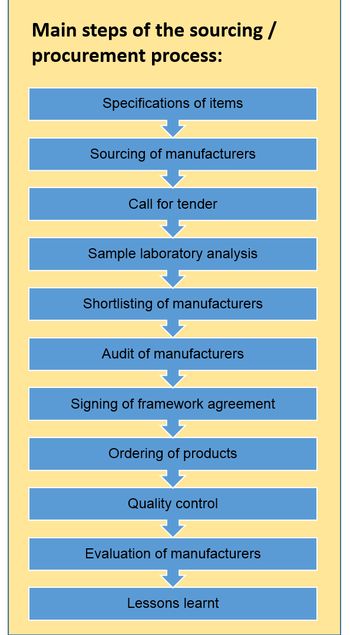This is the first of a three-part series, Raising the Bar, on how the ILO and ICRC are promoting responsible enterprises through the Sustaining Competitive and Responsible Enterprises (SCORE) Training project. This will be followed by an interview with Michael Elkin, the Chief Technical Adviser of SCORE, and another with a potential ICRC supplier that underwent the training.
The ICRC provides urgent assistance such as food and essential household items to millions of people in areas affected by armed conflict every year. In 2013, the ICRC provided essential household items — mainly tents, blankets, tarpaulins, plastic mats, jerry cans, kitchen sets, mosquito nets and buckets — to some 3,466,000 returnees, internally displaced people, residents and people deprived of freedom.
A large part of the distributed goods are sourced from Asian markets, including India and China, by ICRC’s Asia Sourcing Manager, Rodney Gallwey. Sourcing of manufacturers and procurement of products is a long, complicated process, and potential suppliers are subject to rigorous checks. A company has to match up to global standards of social compliance, management/production processes and environmental impact to make it to our list of suppliers. To this end, the ICRC often urges potential suppliers to undertake the Sustaining Competitive and Responsible Enterprises (SCORE) Training conducted by the ILO.
“While selecting a company, the ICRC looks for two globally accepted certifications — one from the Business Social Compliance Initiative (BSCI), an international certification body, and the other is SA (Social accountability) 8000. These certifications are not mandatory, but we prefer companies we choose as suppliers to have them as they are an indicator of ethical practices,” says Gallwey. In India and China, many companies do not have these certifications, but the trend, he adds, is changing.
Besides checking for these certifications, the ICRC performs onsite assessments of potential and current suppliers in India on a regular basis. “When a company fails to meet the requirements and needs to undergo corrective action to be included in the ICRC’s panel of suppliers, we urge them to undertake the SCORE Training,” says Gallwey.
SCORE is a training programme for small and medium enterprises with over 40 employees and has a holistic, integrated management approach towards enterprise enhancement. It aims to improve management and human resource practices and also addresses the environmental impact of a company. SCORE incorporates five training modules: Workplace cooperation; Quality; Productivity through cleaner production; Workforce management for cooperation and business success; Safety and health at work.
“SCORE, which was launched in India in 2011, aims to help companies achieve their targets — on-time delivery, quality control and minimizing cost — faster and better in a sustainable manner by helping them develop a system that is people-oriented,” says Sudipta Bhadra, the National Project Manager for SCORE in India.

The ICRC runs checks on parameters like safety and hygiene. Many SMEs in India fall short of the global standards of social compliance. ©ICRC
Initially companies are resistant to certain components of the training and changing mindsets is a challenge, says Bhadra. “Most enterprises are looking for quick solutions and usually want to undertake modules II or III as they focus on quality and productivity. However, Module I, which focuses on workplace cooperation and encourages the management to include operators and other lower-level staff in planning and problem-solving, is mandatory. Companies, after undergoing the module, understand its importance and are very appreciative of it. This is a positive trend and reflects changing mindsets,” says Bhadra.
The ILO is working not only at the micro level with companies but also at the meso and macro levels with industry chambers like FICCI, trade unions and the Government of India to raise awareness about the need for making enterprises sustainable and responsible. “One of our objectives is to build awareness about modern management practices with a focus on human resources. We tell companies that to be competitive in the market, you have to invest in your people. We are working with the government to see where we can fit into their policies and programmes towards the same end,” says Bhadra.
For ICRC, the aim of encouraging potential suppliers to undertake the SCORE Training is to promote an ethical way of working and managing their enterprises. Gallwey says many Indian companies these days are eager to undergo SCORE because it opens up the international market for them.
“Specialists from the ILO SCORE project provide support to enrolled companies in enhancing their standards on various parameters such as social compliance, security and quality management. Once a potential supplier completes the course, they are reassessed to check how their working style or the management of their enterprise has improved. Therefore, everyone benefits from the programme — the company, the employees and the ICRC, as it enables us to have suppliers with better set-ups and improved ways of working,” explains Gallwey.
The ICRC Asia Sourcing Manager is in touch with the ILO office in Delhi and can help interested companies contact the programme manager of SCORE in Geneva.
To learn more about the SCORE project, click here.
To view the ICRC’s procurement catalogue, click here.
ICRC New Delhi



